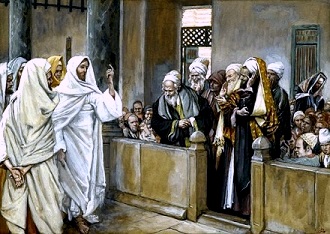
Among the changes that the pandemic has brought are a new market for masks, hand sanitizers, covid signs, vaccines, and other items meant to stop the flow the virus. Imagine a year from now (we hope) when these items are no longer in demand. Will the manufacturers for these products lobby to keep the virus restrictions enforced, so they can keep their businesses going? I hope not.
Today we read about an encounter between Jesus and some religious leaders over rules and regulations (Mark 7:1-13).
“When the Pharisees with some scribes who had come from Jerusalem gathered around Jesus, they observed that some of his disciples ate their meals with unclean, that is unwashed hands. (For the Pharisees and, in fact, all Jews, do not eat without carefully washing their hands, keeping the tradition of the elders. And on coming from the marketplace they do not eat without purifying themselves…). So the Pharisees and scribes questioned him, ‘Why do your disciples not follow the tradition of the elders…’”
Where did these traditions originate? Was it from a time when the preservation of a society depended on keeping as germ-free as possible? Disease spread quickly and precautions had to be taken to keep their hands and surroundings clean. These traditions perhaps had outlived their purpose, as standards of living changed. Yet their enforcement continued, and the religious leaders made their living on knowing, teaching, and regulating these rules and regulations.
How did Jesus respond to their concern that his disciples comply with the washing practices of the elders?
“He responded, ‘Well did Isaiah prophesy about you hypocrites, as it is written: This people honors me with their lips but their hearts are far from me; in vain to they worship me, teaching as doctrines human precepts.’ You disregard God’s commandment but cling to human tradition.”
God himself, in the person of Jesus, was standing in their midst and they were so busy with their picky rules that they did not even recognize him. The most glorious moment in human history was being enacted in front of them, and they spent their time dusting off old, out-dated rule books. They were ignoring the presence of God and staying wrapped up in human tradition.
Jesus continued to berate them. He reminded them that some of God’s greatest commands, like taking care of aging parents, were being neglected under the pretext that they money was needed to support temple salaries and temple decoration. They were ignoring camels and focusing on insects. How blind they had become!
“You nullify the word of God in favor of your tradition that you have handed on.”
Wow! What an indictment! Jesus accused them of “nullifying” the Word of God. Is there a greater crime? Wouldn’t it better to have dirty hands than to try to cancel out God’s very Word?
No doubt the religious leaders were insulted and probably angry at Jesus. As Jesus exposed their hypocrisy, do you think any of them faced the truth of what he said and repented of their sin?
What about us? Are we guilty of putting our own petty concerns ahead of God’s Word? Are we more pre-occupied with insignificant things in our lives than we are with the very presence of God’s Son in our midst? If we truly recognized Jesus, wouldn’t we be pushing down church doors? As it is, even when virus regulations are observed, most available church pews are still empty. Jesus is in our midst! Don’t we get it?
“Incline my heart, O God, to your decrees…” (Ps 119:36).
